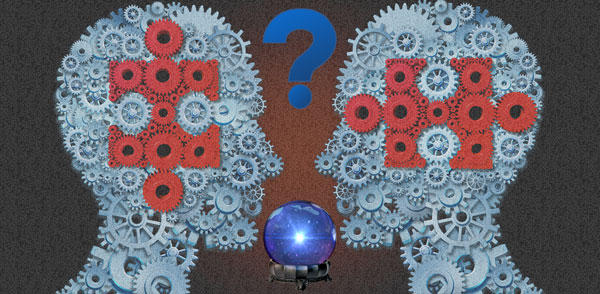It takes qualified and experienced licensed psychologist, to perform a comprehensive psycho-diagnostic evaluation. At New Jersey Clinical and Sport Psychology in Ridgewood, NJ, Dr. John Macri assesses and intervenes in a competent manner.
When parents begin the process, they have many questions as to what constitutes a comprehensive psycho-diagnostic evaluation. It all depends on the referral question”What would you like to find out?” or “What do you need to know” about your child to help him/her perform better in an educational setting.
Broadly speaking, a comprehensive evaluation should involve the following components:
- Interview – The most important people to interview are the parents and the child. The parent interview reveals developmental milestones, significant medical history, relationships with other family members, and school history. Any anecdotal information and records for review should be obtained at this visit. Usually the child interview is conducted on the day of the evaluation Rapport should be established between the child and examiner so the child feels comfortable and inclined to answer honestly. This leads to a valid profile that is representative of the child’s true ability.
- Behavioral Observation – Observation of behavior is one of the most vital components of an evaluation, whether that takes place in a classroom, school, social setting, or in the examination room.
- Intelligence Test – Many people get concerned with concept of intelligence. They usually have a negative bias towards these instruments. An intelligence test is not a dichotomous measure. It does not mean that your child is smart or not smart. Your child’s IQ score does not determine his or her destiny. When working with families, I rarely report the overall score for that particular purpose. An intelligent tester will identify the relative pattern of strengths and weaknesses in any given profile. It assists in understanding a child’s potential. More importantly, it gives information on core mental processes such as verbal skills, nonverbal reasoning, processing speed, fluid reasoning and memory.
- Educational Evaluation – An educational evaluation measures how a child is doing in specific academic areas such as reading, math, writing, oral language and fluency (how quickly one can perform tasks). In terms of statistics, it yields both age and grade based norms. Most parents understand percentile norms better. For example, one might say, “Your child scored at the 50th percentile compared to other children her age across the nation in the area of mathematics”.
- Psycho-Social Assessment – Assessment of psychological adjustment can be done in an objective and subjective manner. Objective measures use standardized rating scales that can be completed by a parent, teacher, and the child. It measures the child’s behavior in two setting: home, school. It also measures the child’s perception of himself. It yields information pertaining to emotional functioning, internalizing disorders (i.e, anxiety), and externalizing behavior (acting out), social skills, among many other indices. Subjective assessment of adjustment relies on qualitative means to assess adjustment. A child responds to open-ended items presented to him. It is more open to interpretation of the examiner. A balanced assessment complements subjective and objective measures.
- Visual-Motor Development – A visual-motor test evaluates a child’s fine motor ability. Observations are made regarding how well a child holds a pencil, his ability to copy geometric shapes and designs under structured and unstructured conditions, as well as ability to recall patterns from memory.
Questions to Ponder
- Is there consistency between the intelligence test and academic performance as measured by the educational evaluation?
- What is the overall pattern of strengths and weaknesses across measures?
- What do the parents, teacher, and child have to say about his/her learning? Is this confirmed by historical data and report cards?
- Is there an emotional, social or behavioral problem that is affecting learning?
- Is there a definitive diagnosis that can best describe what this child is experiencing?
The Summary and Integration of these questions and results brings together the complete profile of the examinee. I view this process as “ putting together the pieces of a puzzle”. Over my 17 years of practice, one of my favorite things to do is sit with parents and explain results of evaluation. I enjoy integrating all of the data gathered and discovering each child’s potential in a language that parents can understand. I aim to educate, intervene, and empower my clients with the information gathered from the assessment.
